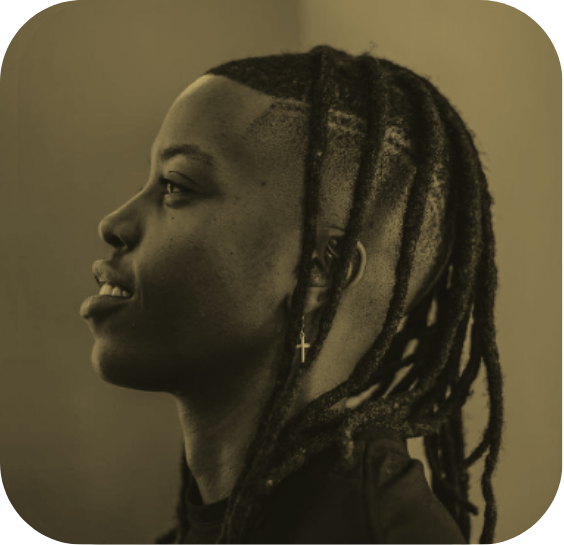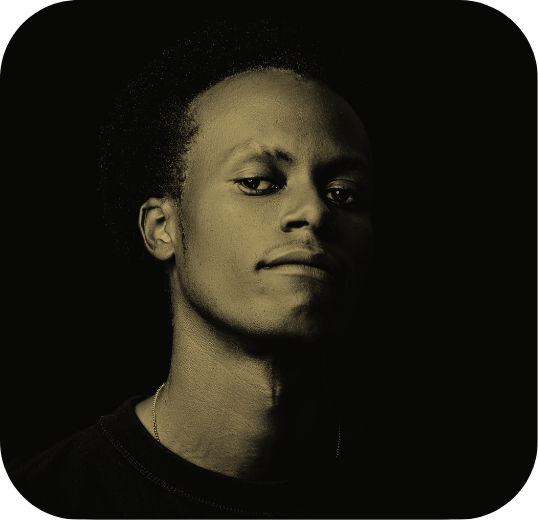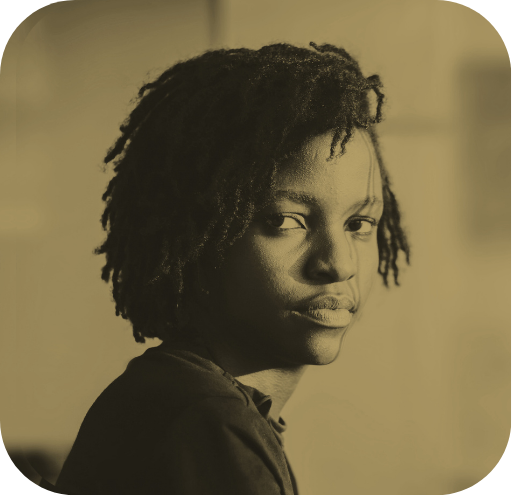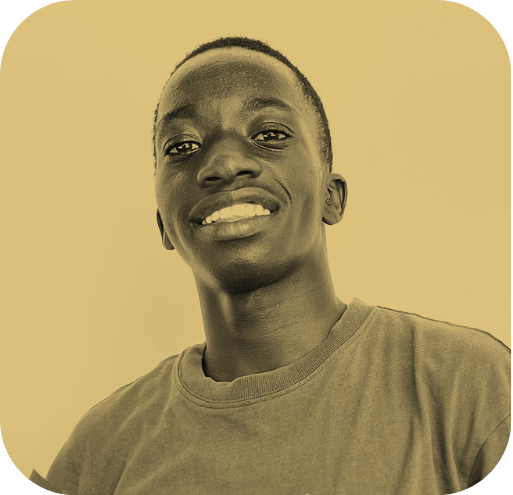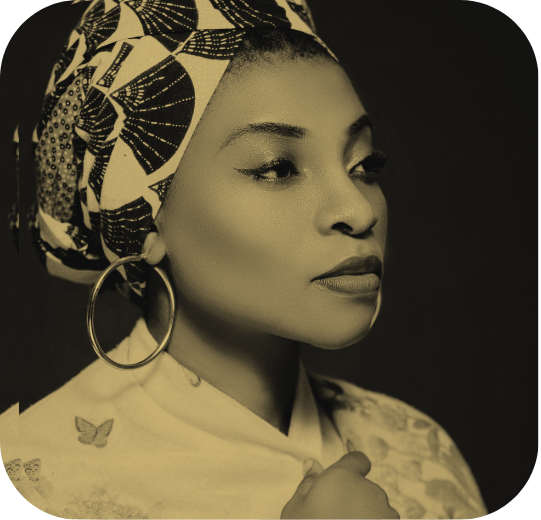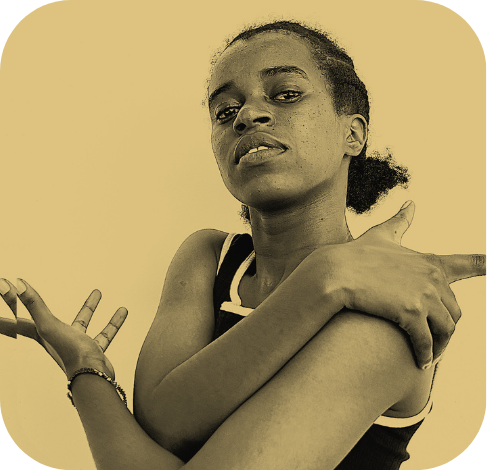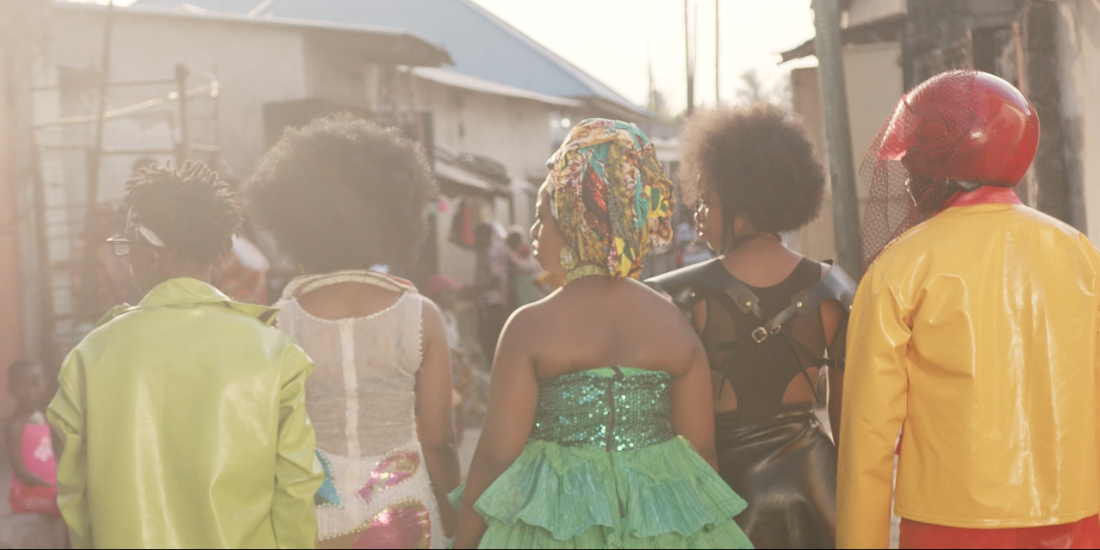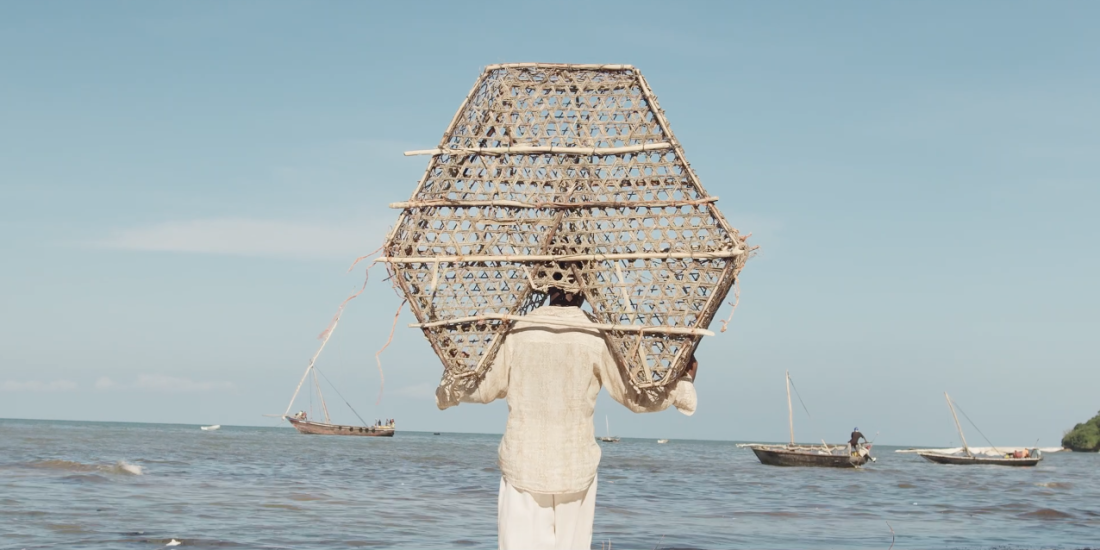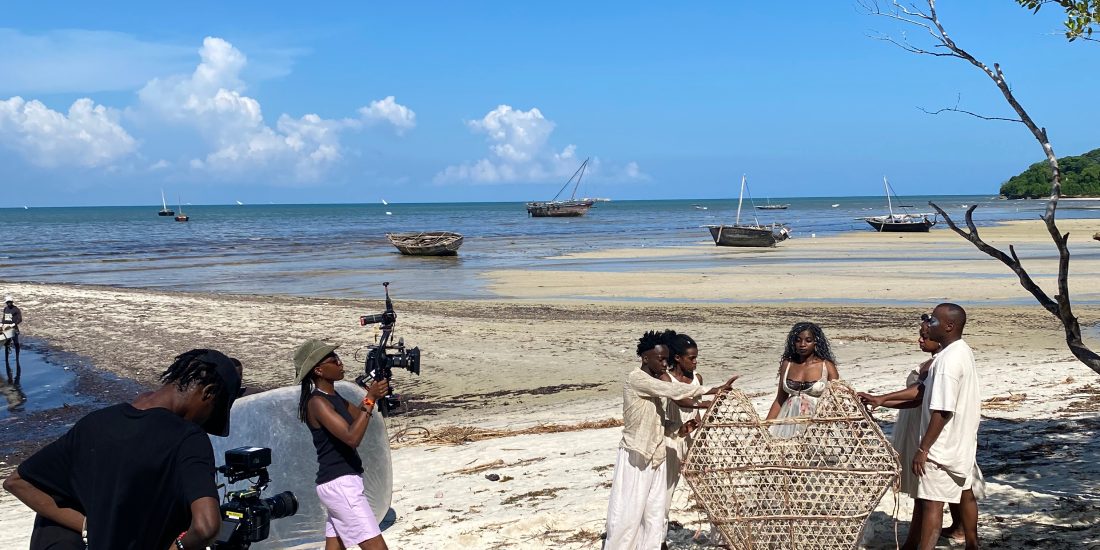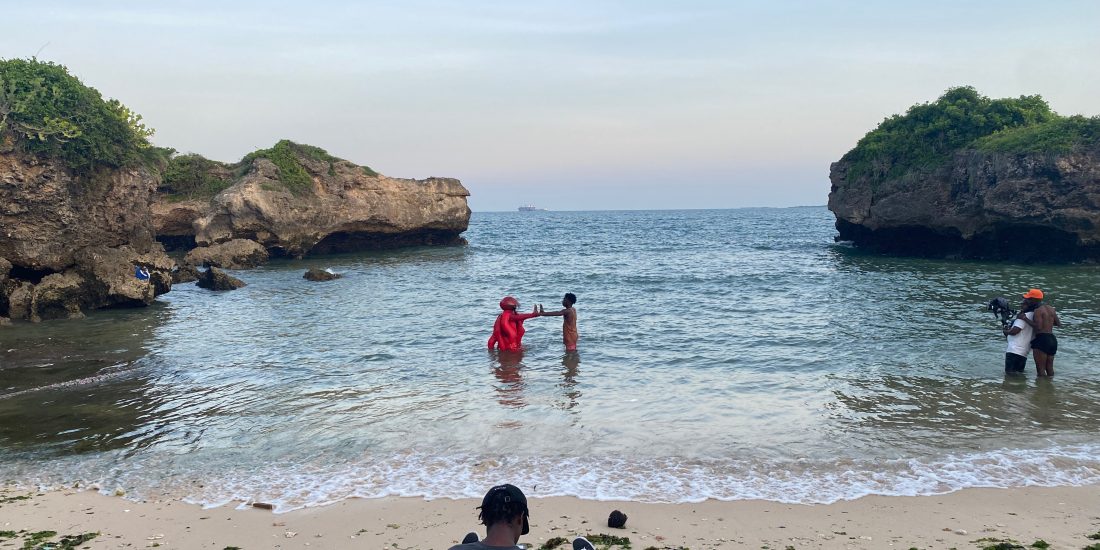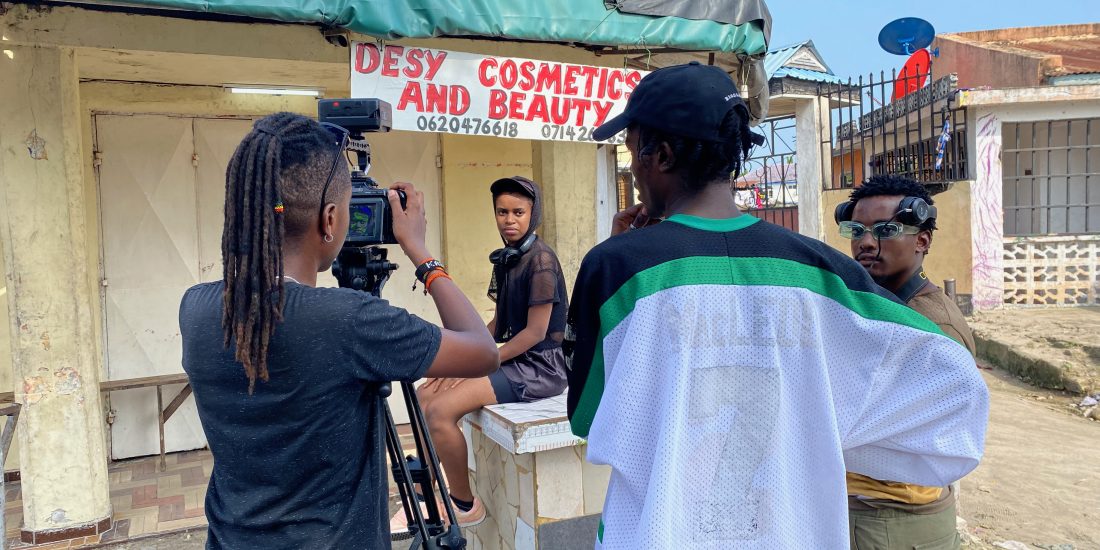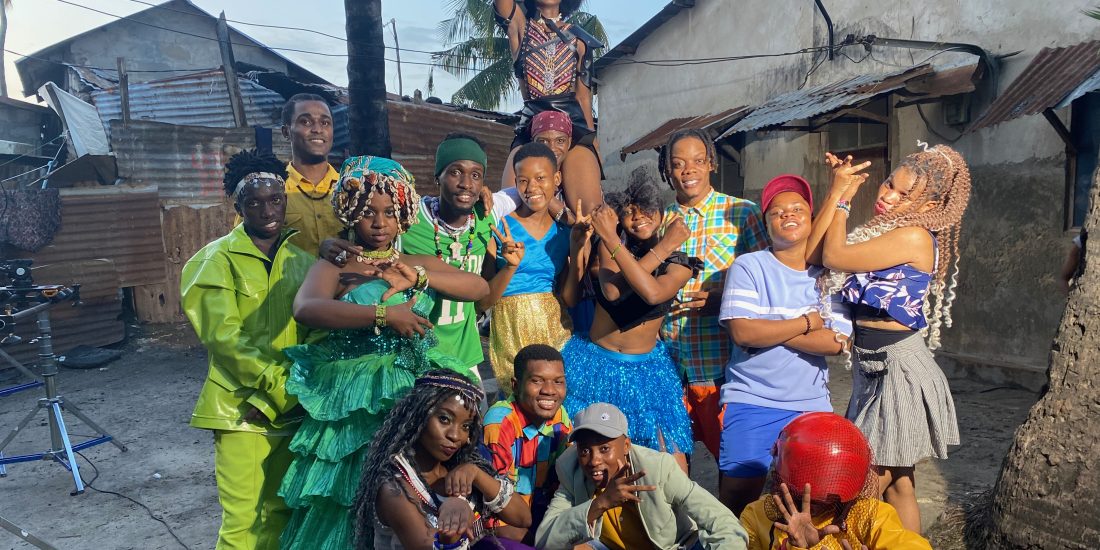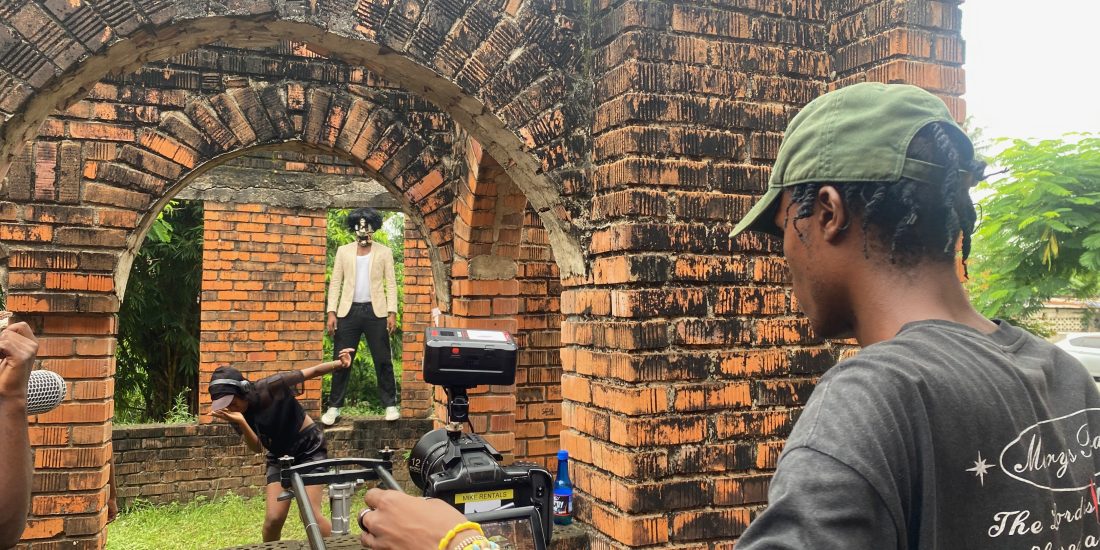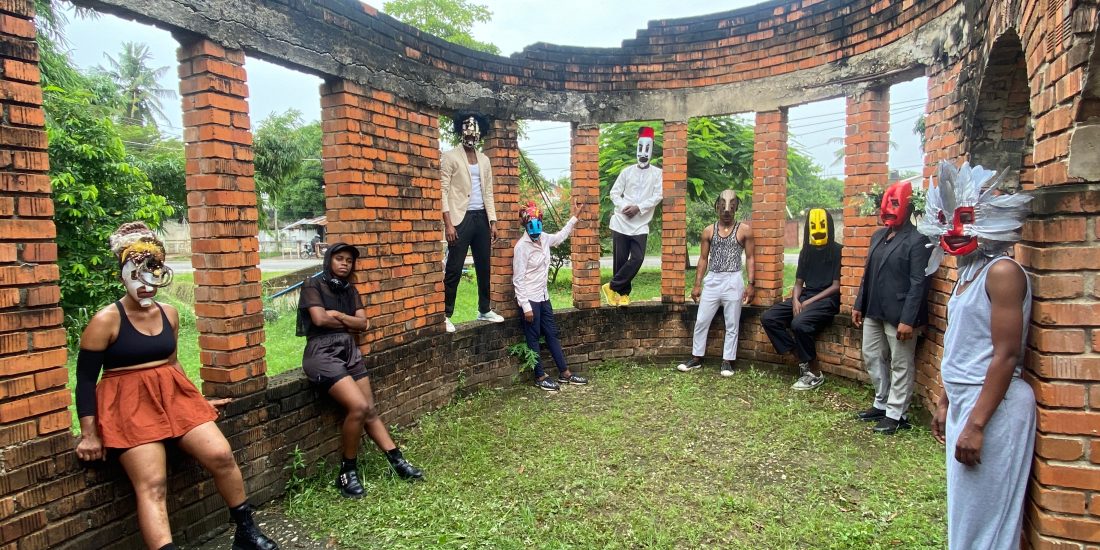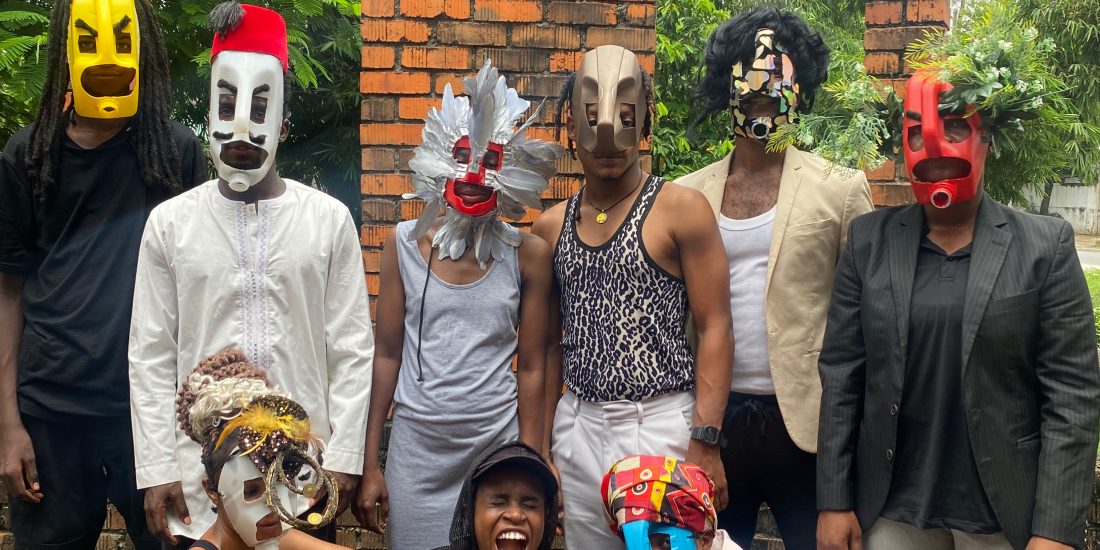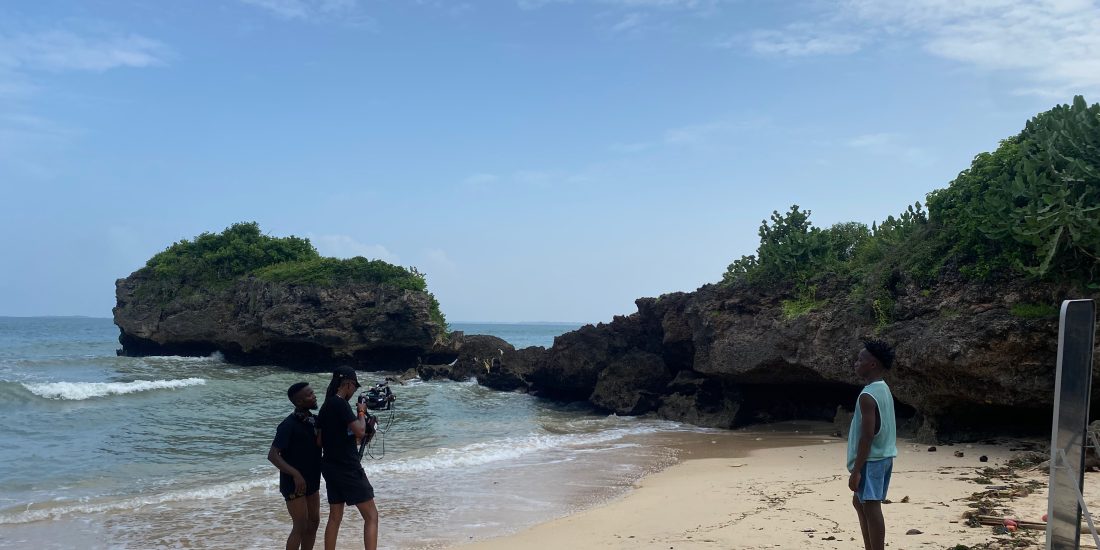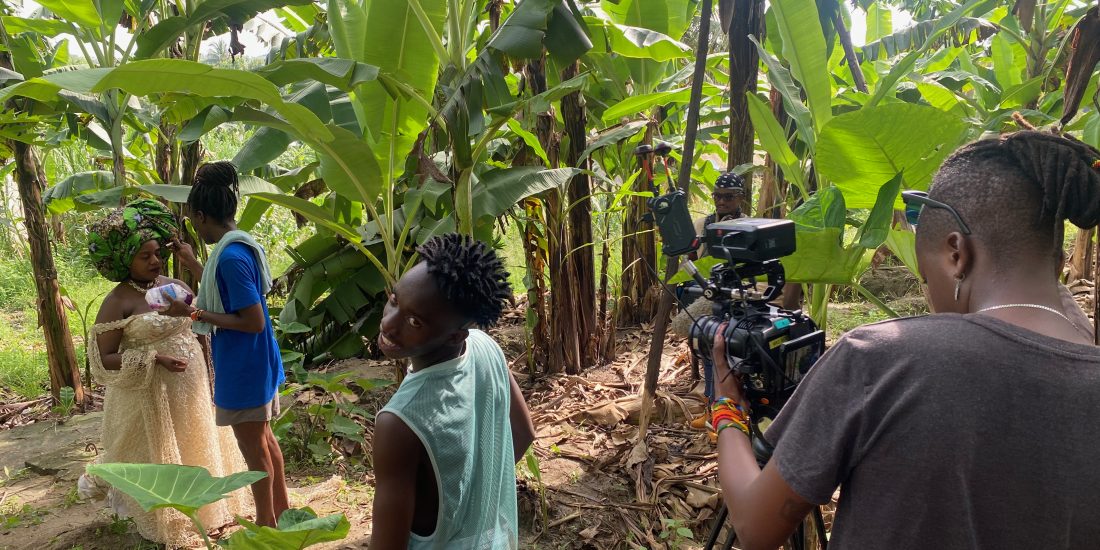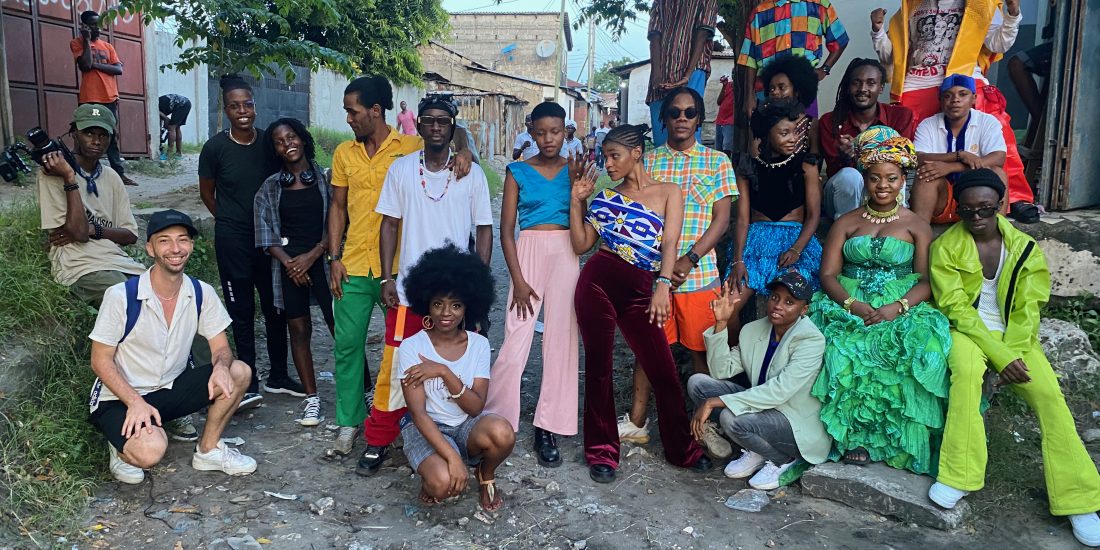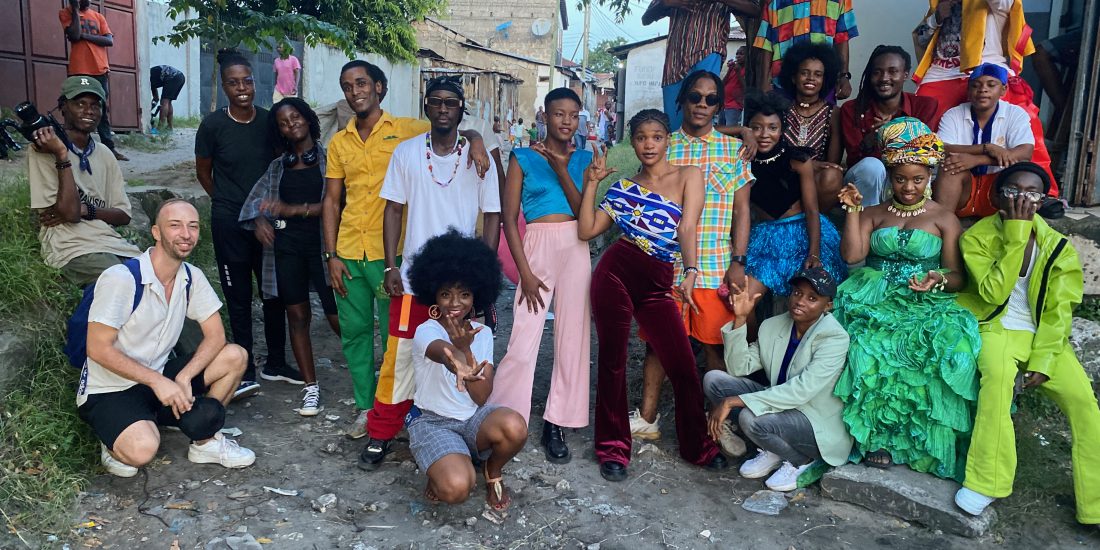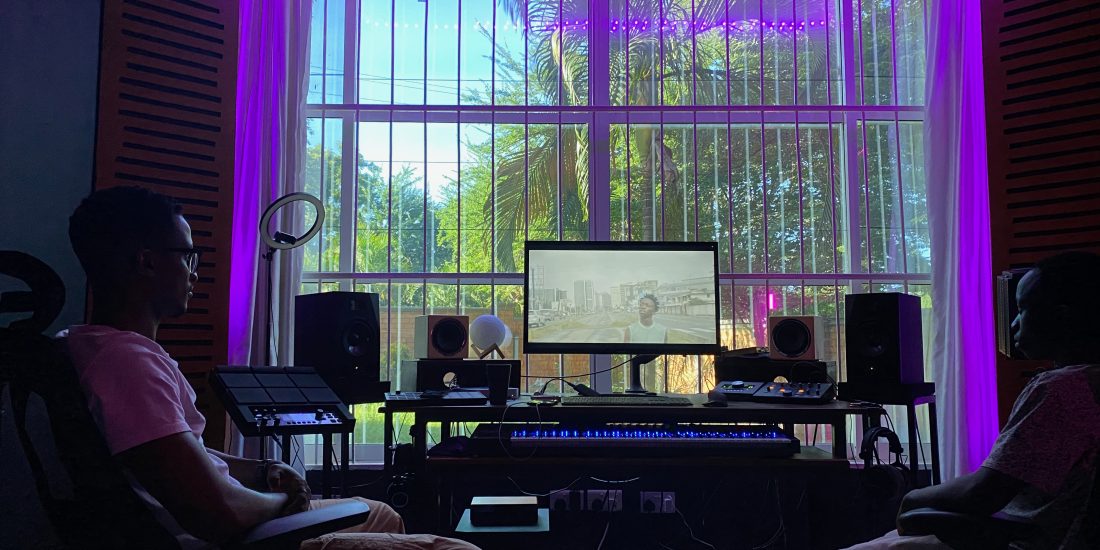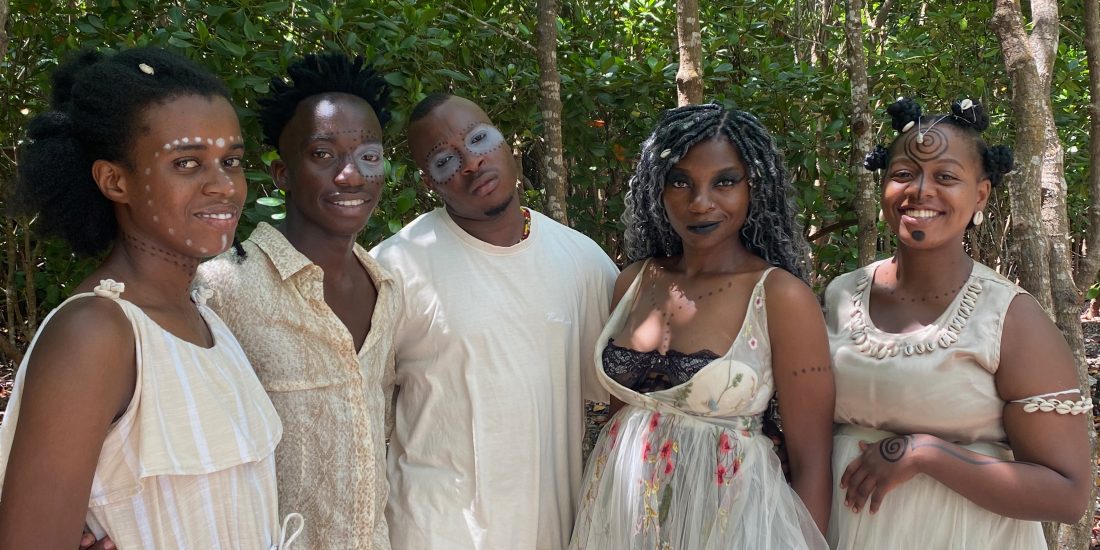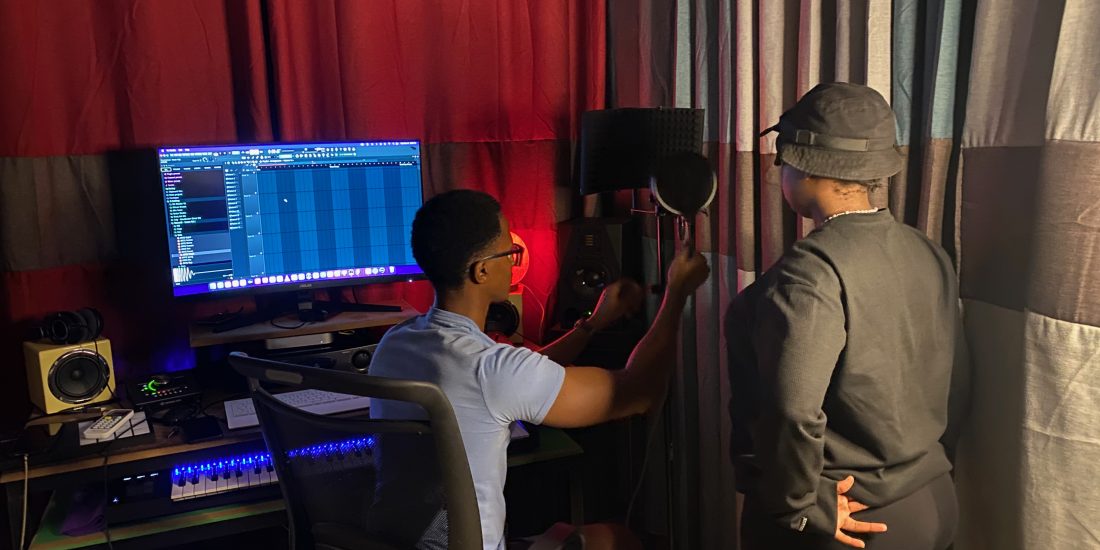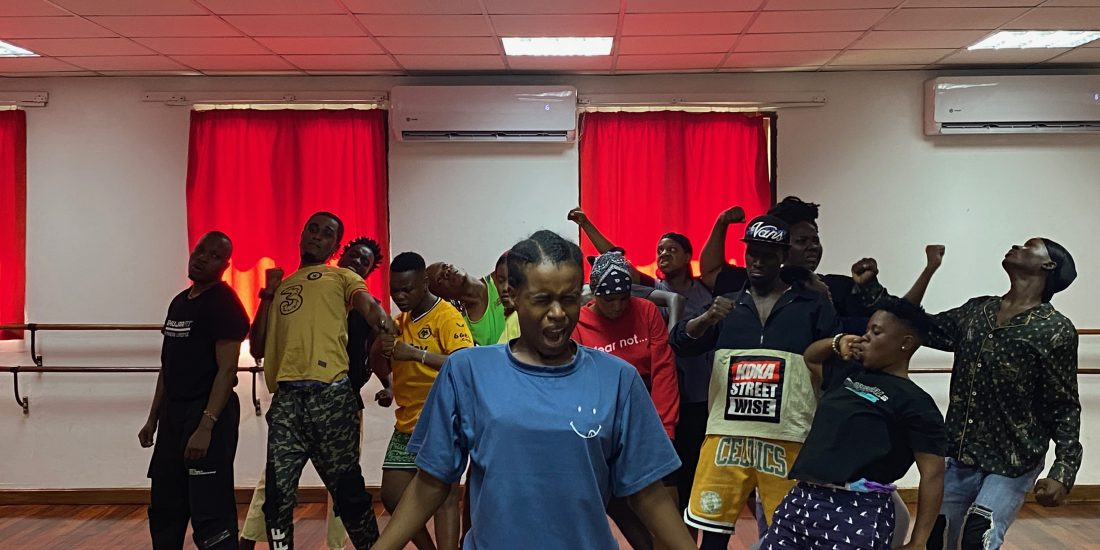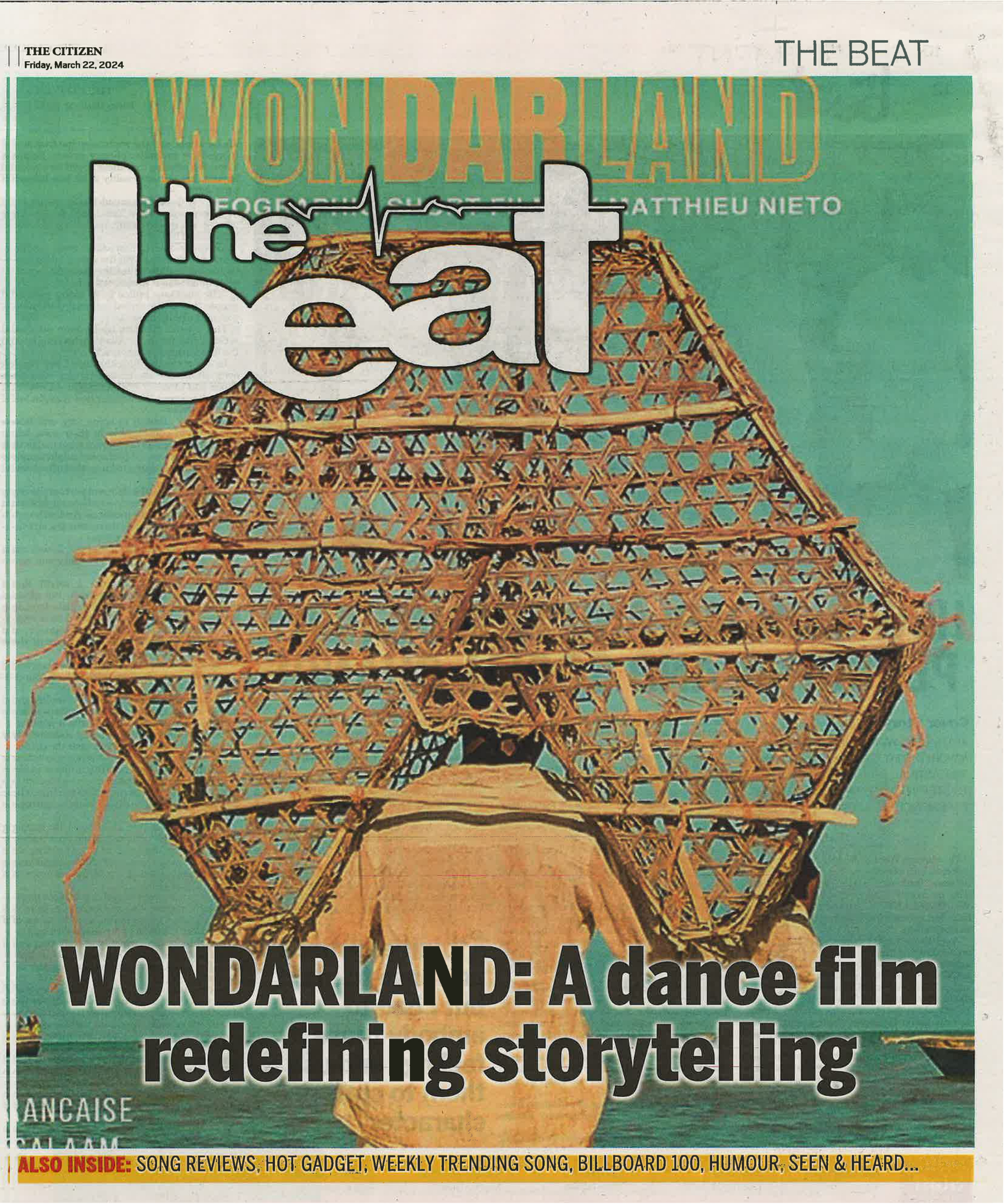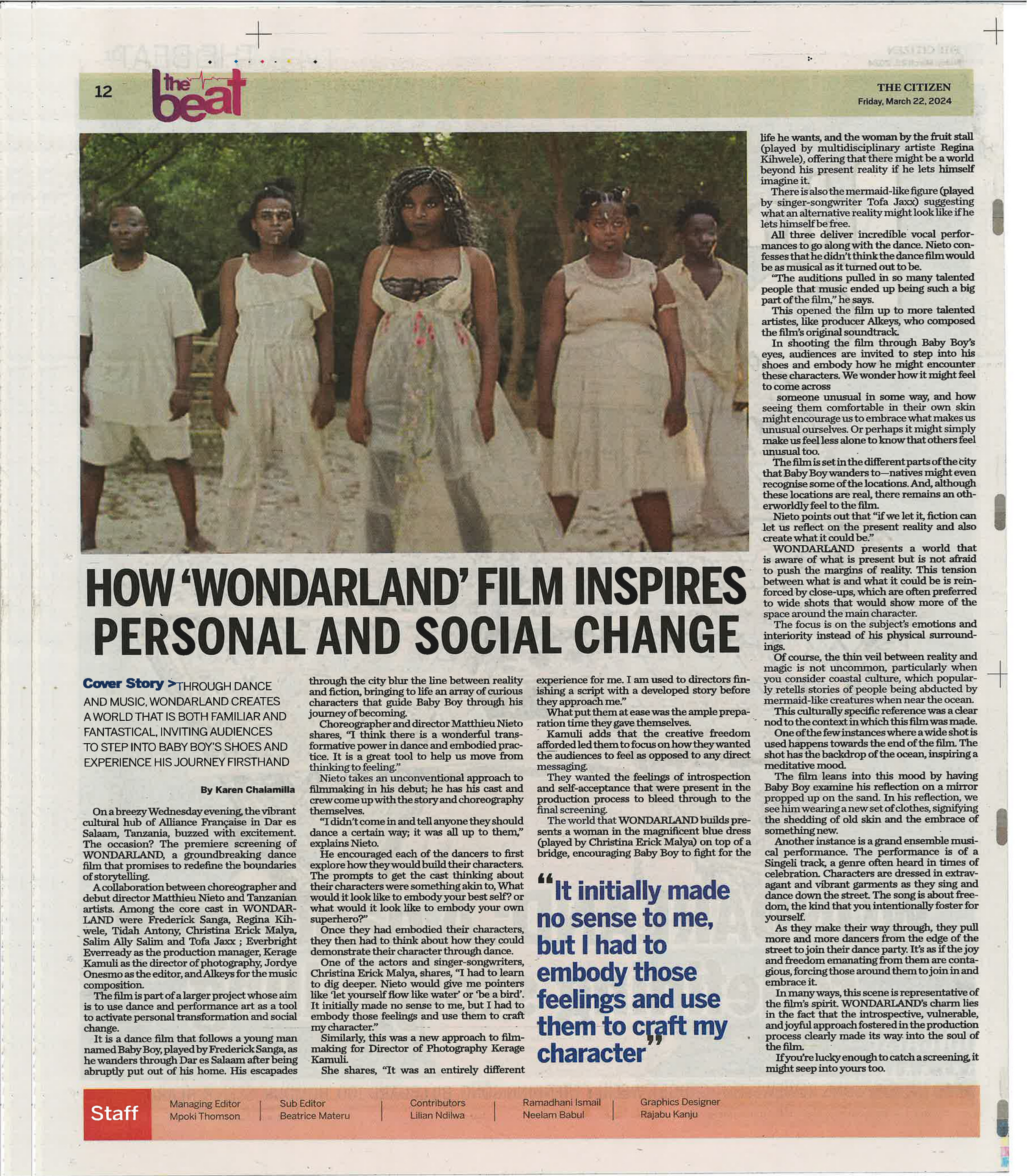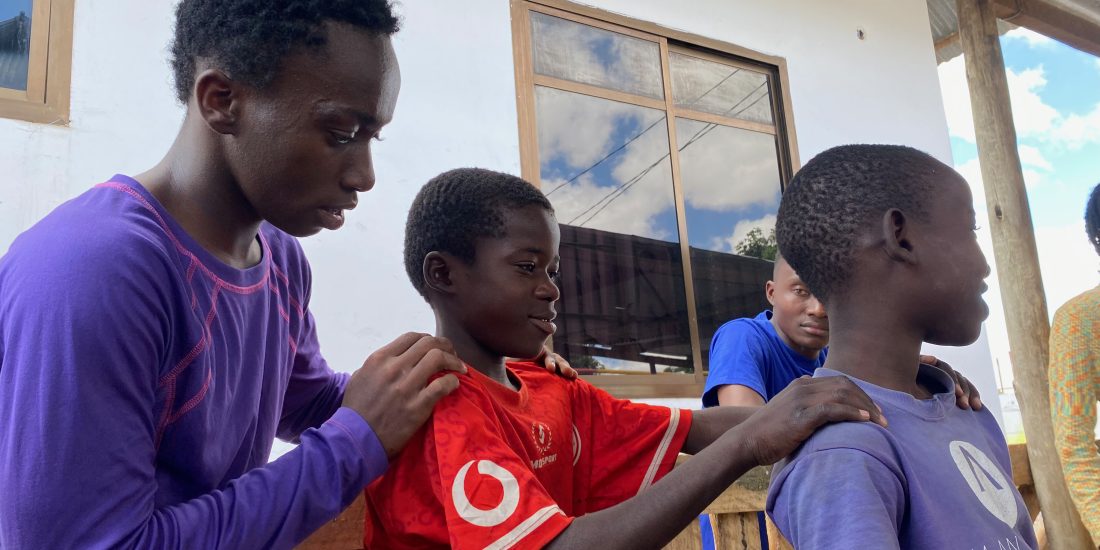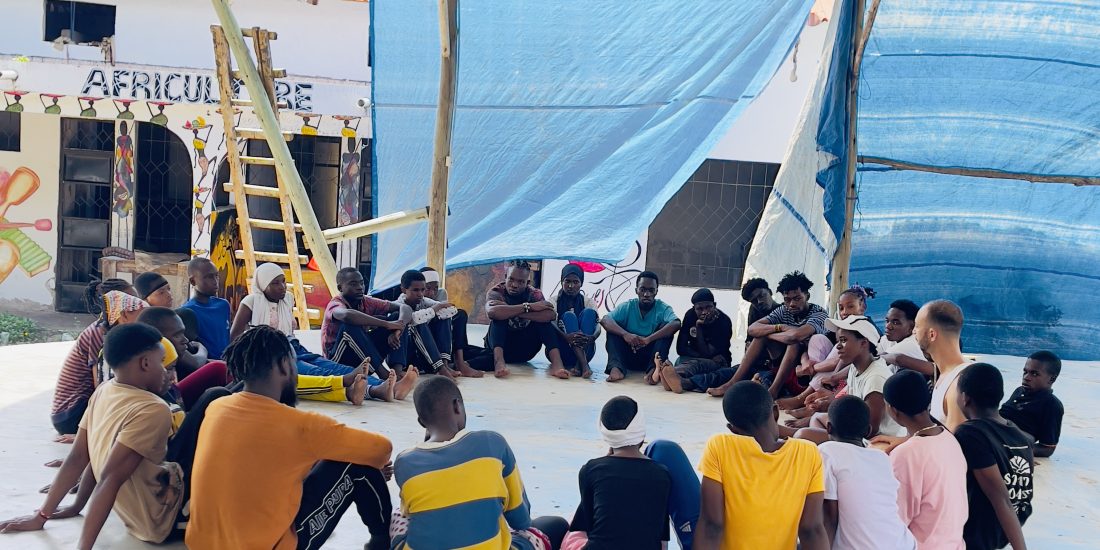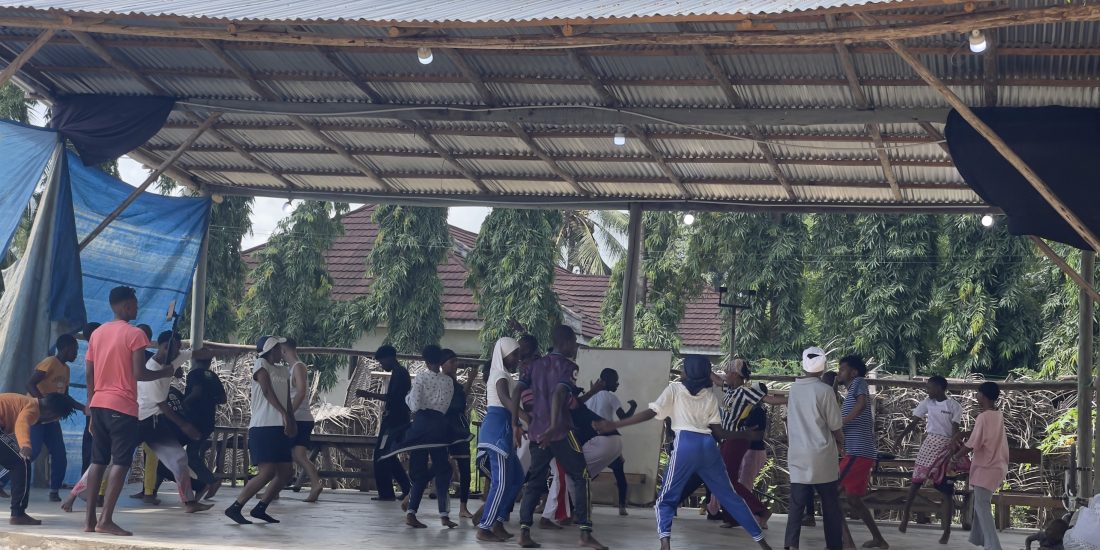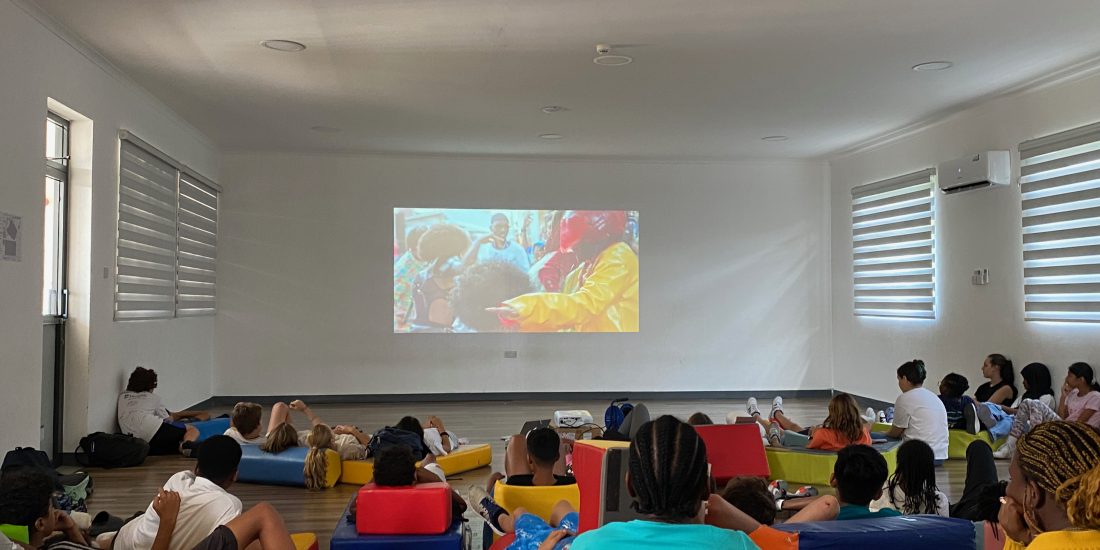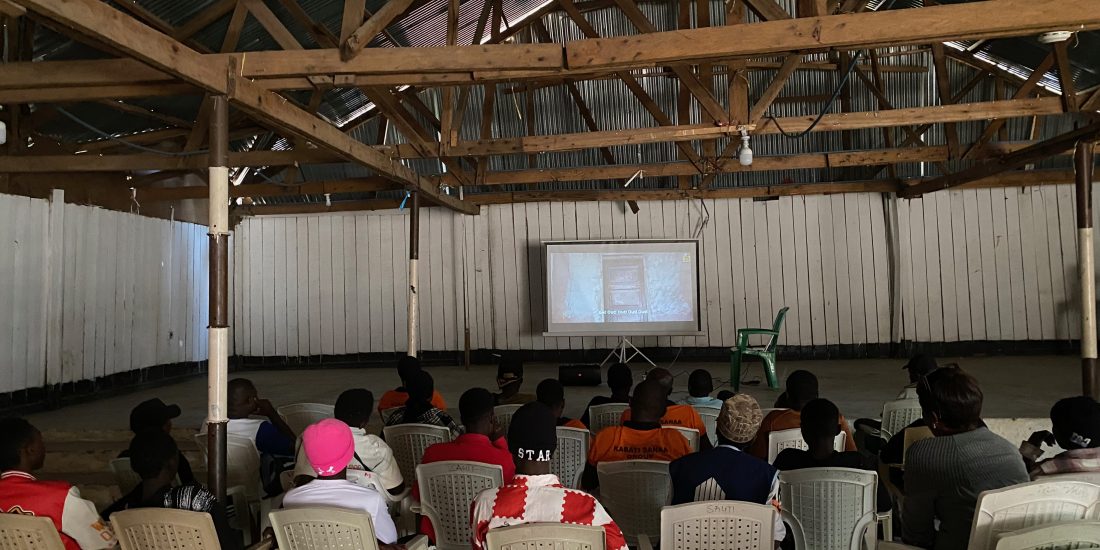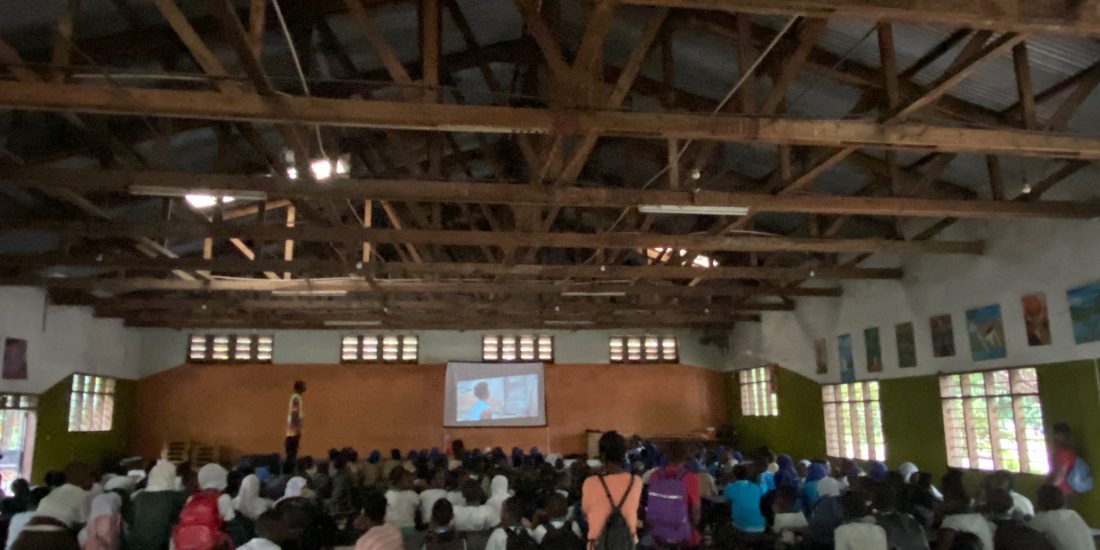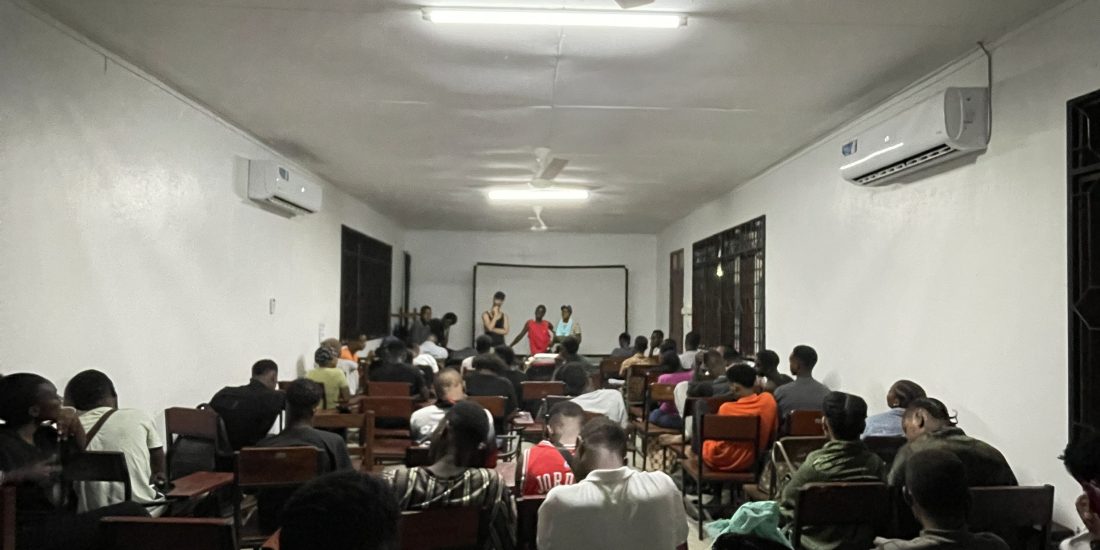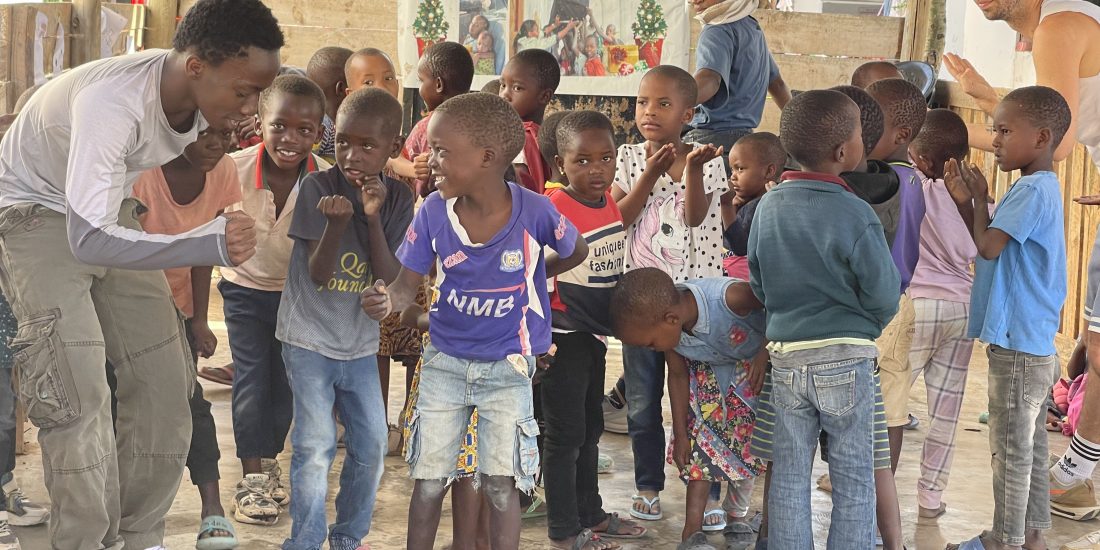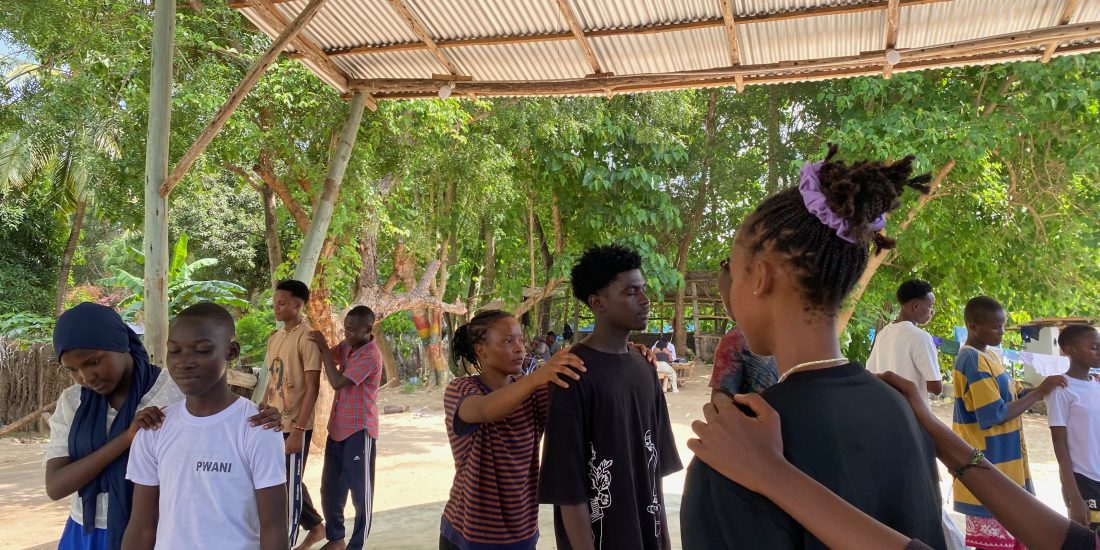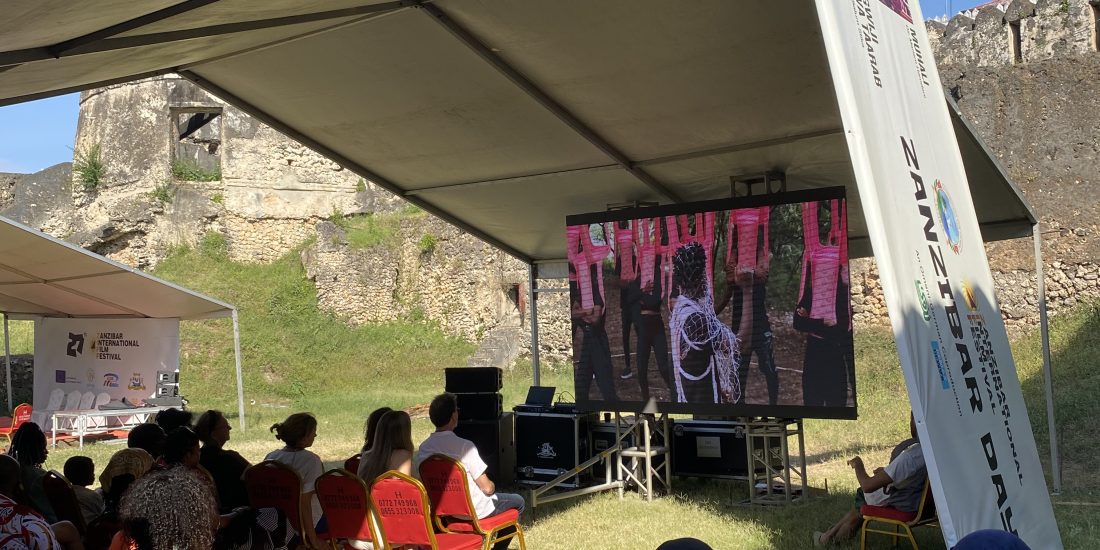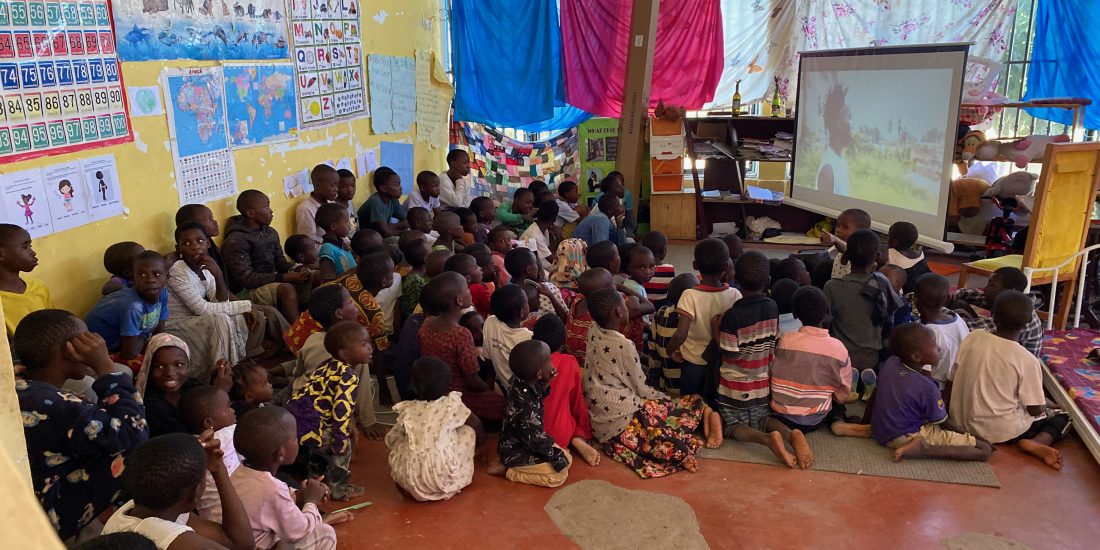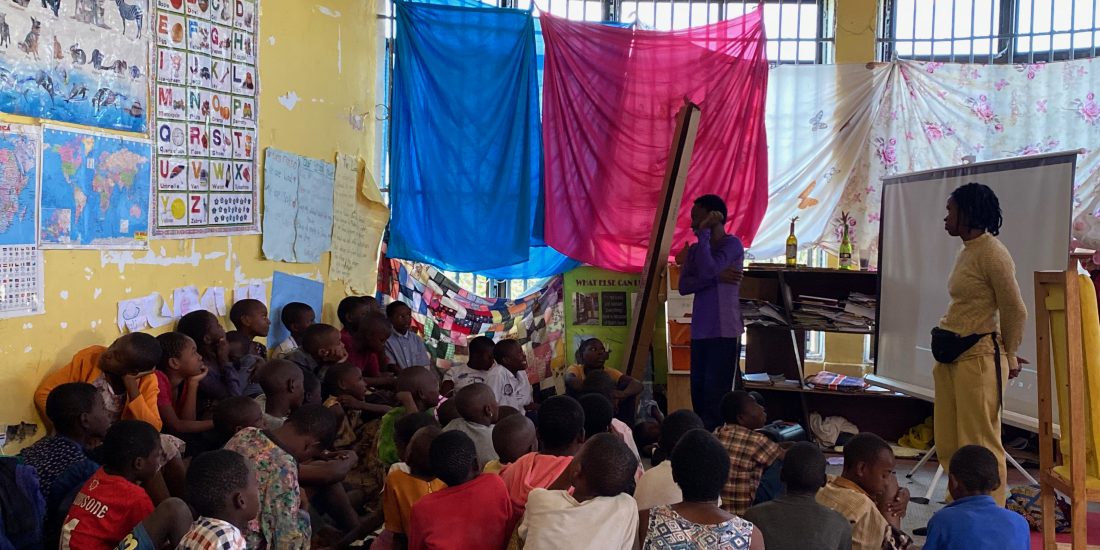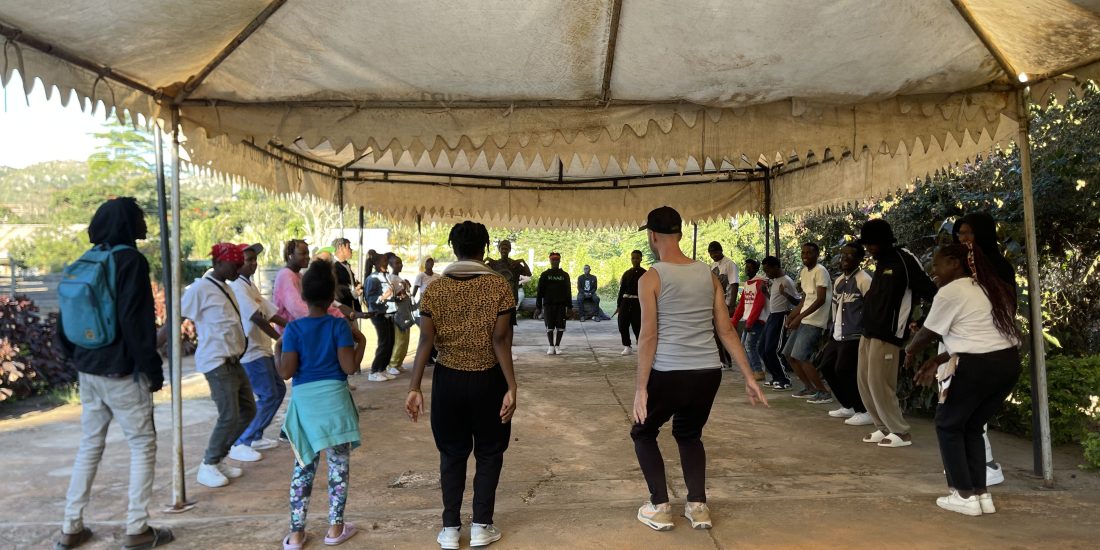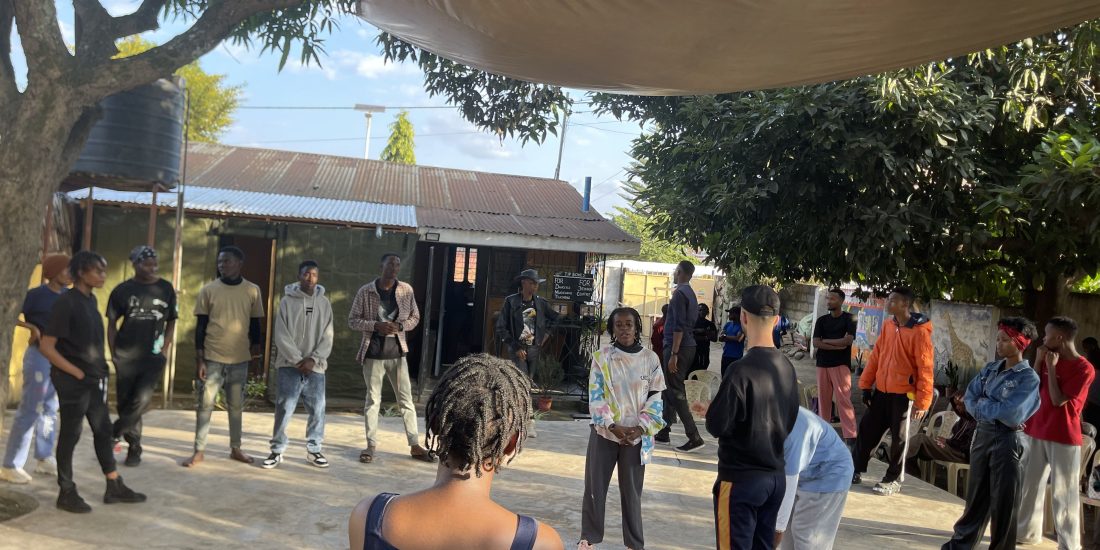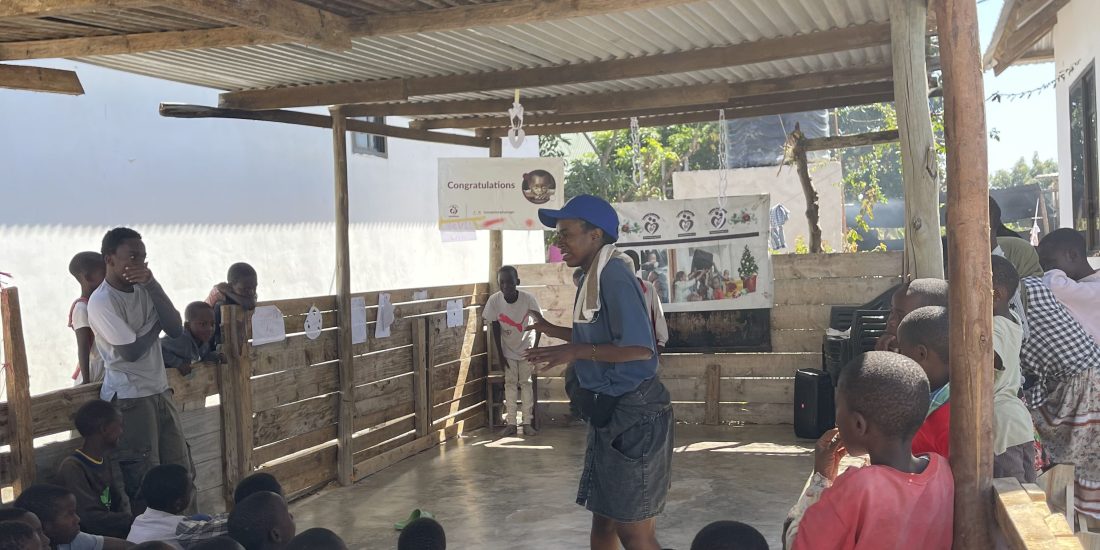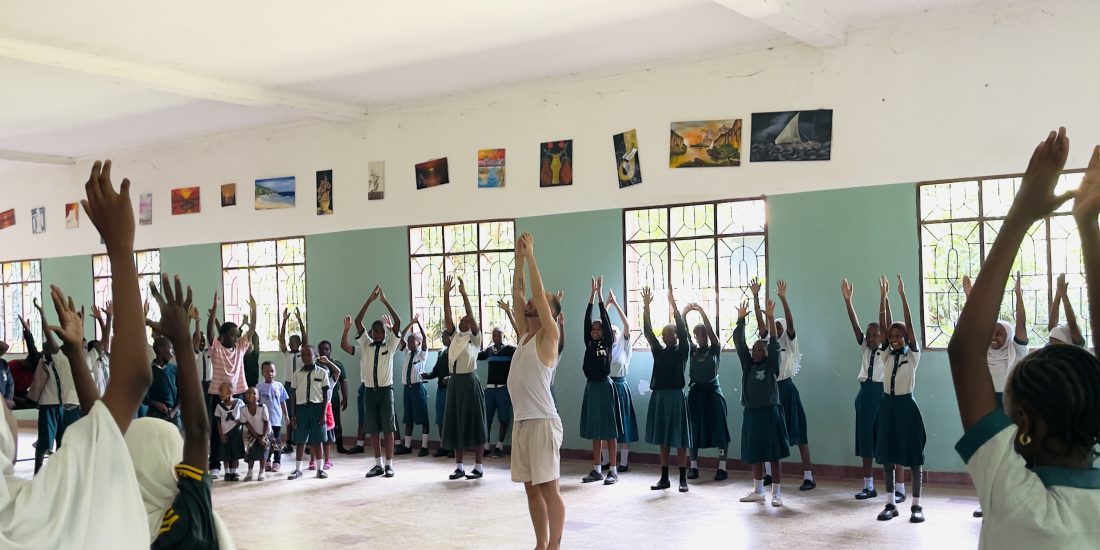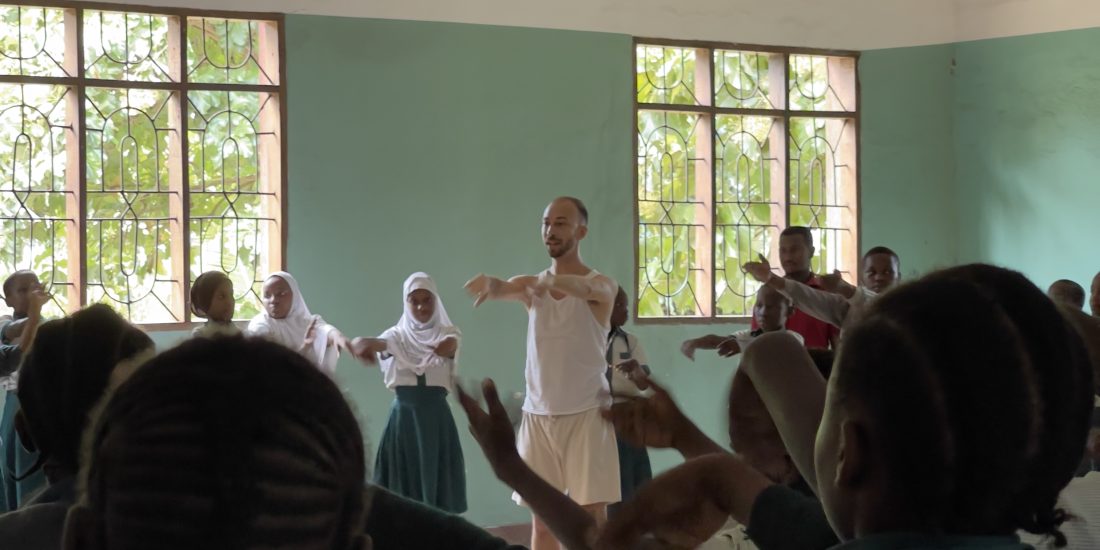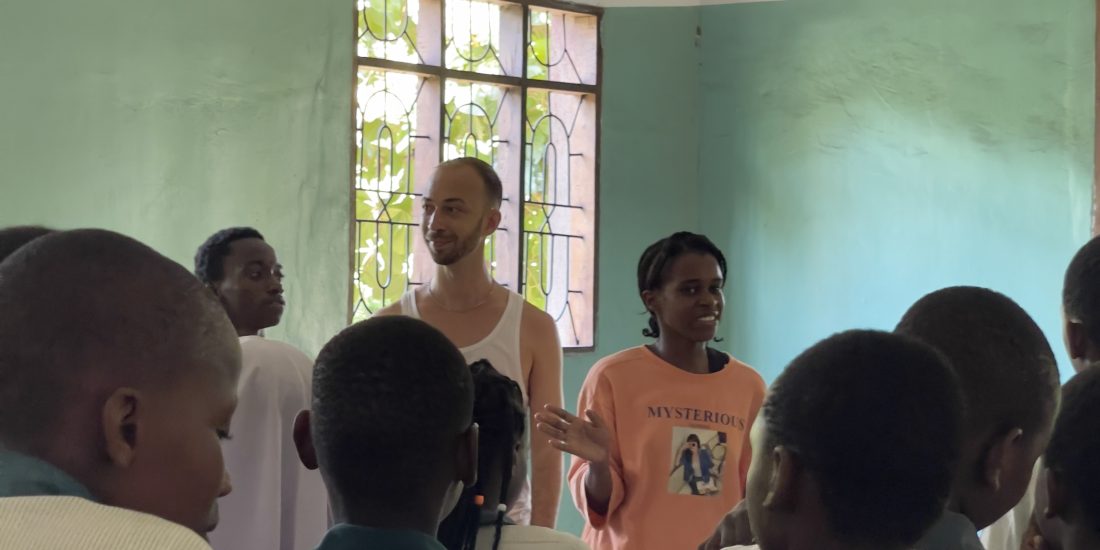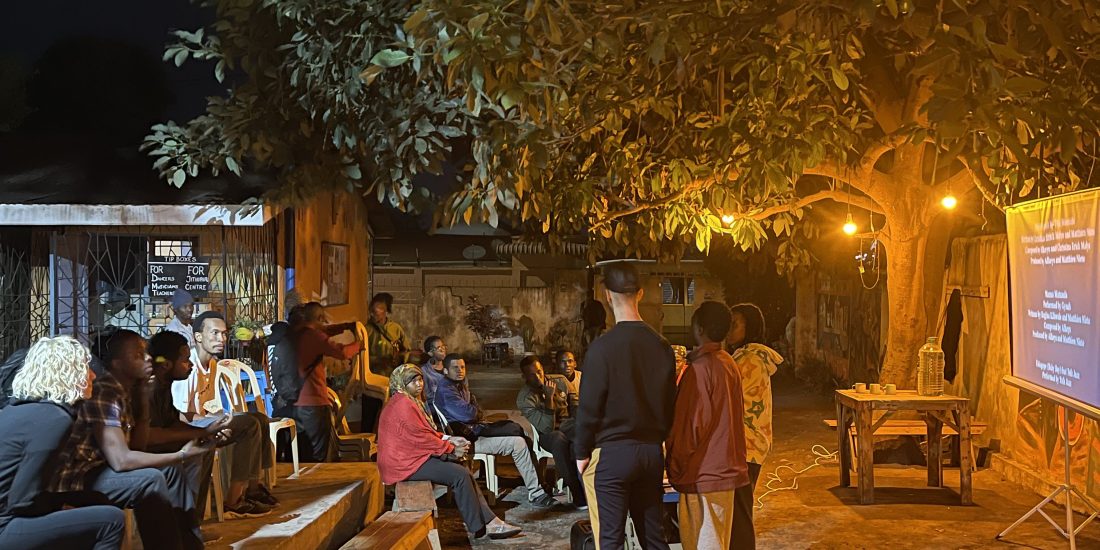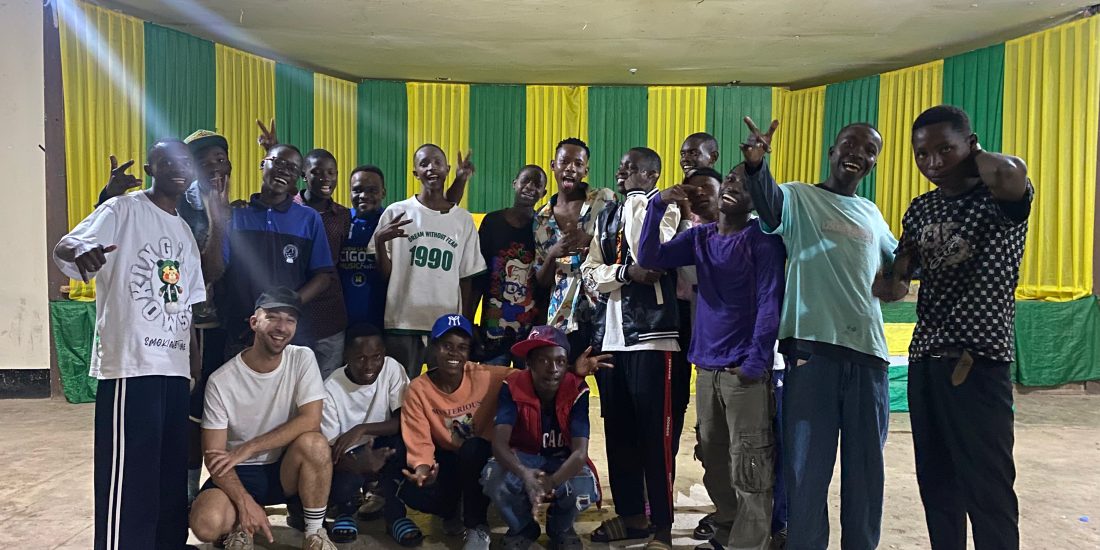WONDARLAND
A SHORT FILM
WONDARLAND is a choreographic short film that takes viewers on a poetic, dreamlike journey with a young man wandering through Dar es Salaam. Blurring reality and fiction, he encounters characters who guide him on a heroic quest for self-discovery and acceptance.
Director & Choreographer
Matthieu Nieto
In Collaboration With
Frederick Sanga, Tidah Antony, Regina Kihwele, Christina Erick Malya, Salim Ally Salim, and Tofa Jaxx
Director of Photography
Kerage Kamuli
Editor
Jordye Onesmo
Music Composer
Alkeys
Production Manager
Everbright Everready
Production Assistant
Louise Mutabazi
Executive Producer
Matthieu Nieto
Production Company
Mouvements Migrateurs
Associate Producer
Alliance Française of Dar es Salaam
With the Support of
Ministère de la Culture / Direction Générale de la Création Artistique
Ambassade de France in Tanzania
CAST & CREW
BEHIND THE SCENES
Starting with a three-day audition at the beginning of October 2023, director and choreographer Matthieu Nieto selected five performers for an eight-week creation period at the Little Theater of Dar es Salaam. Rather unconventionally, the script emerged through a collaborative process in which the performers were invited to question their own self-fictions within the context of Tanzania.
The film allows for the creation of a community—bringing together professional artists and amateurs alike. The short film was shot over a seven-day period in December 2023 and January 2024 at various locations in Dar es Salaam. In total, the film involved a team of 37 collaborators—17 women and 20 men—working together to bring the project to life.
PRESS RELEASES
MEDIATIONS AND SCREENINGS
The WONDARLAND project organized workshops and screenings across Tanzania—in Dar es Salaam, Bagamoyo, Iringa, Dodoma, Arusha, and Zanzibar—to engage young audiences with the short film. These sessions, held in partnership with schools, orphanages, community groups, and art organizations, were co-facilitated by two performers from the film and the artistic director. This also provided an opportunity to introduce the performers to cultural mediation, a process that goes beyond simply teaching a dance class, aiming to foster deeper engagement with both the audience and the artwork.
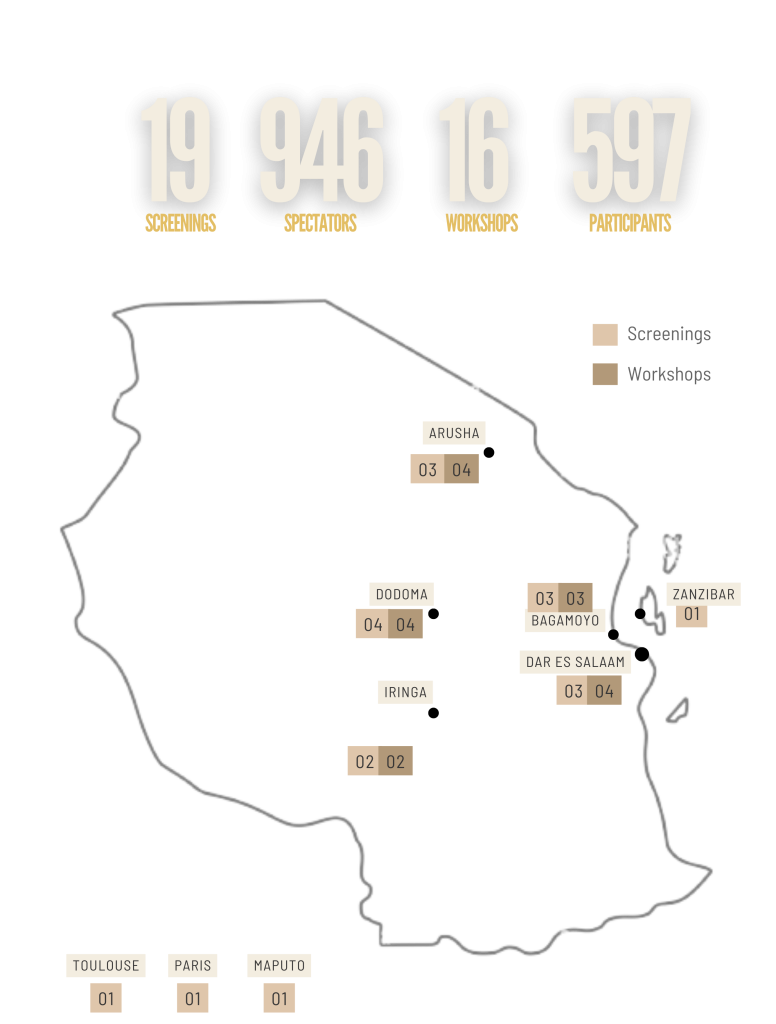
The workshops focused on developing body awareness through the idea of transformation, encouraging participants to explore different ways of walking, posing, and embodying characters. Emphasizing the discovery of their own superheroes, the sessions aimed to build trust and foster empowerment. After the workshops, screenings were followed by conversations with the audience, where it was especially fulfilling to answer questions and hear their personal responses to the film.
This process was crucial given the film’s experimental aesthetics, which offer a unique space for viewers to form their own understandings—distinct from the mainstream productions young audiences are typically exposed to. Cultural mediation, still a developing concept in Tanzania, enabled meaningful dialogue around self-acceptance, tolerance, and a broader understanding of dance and art.



